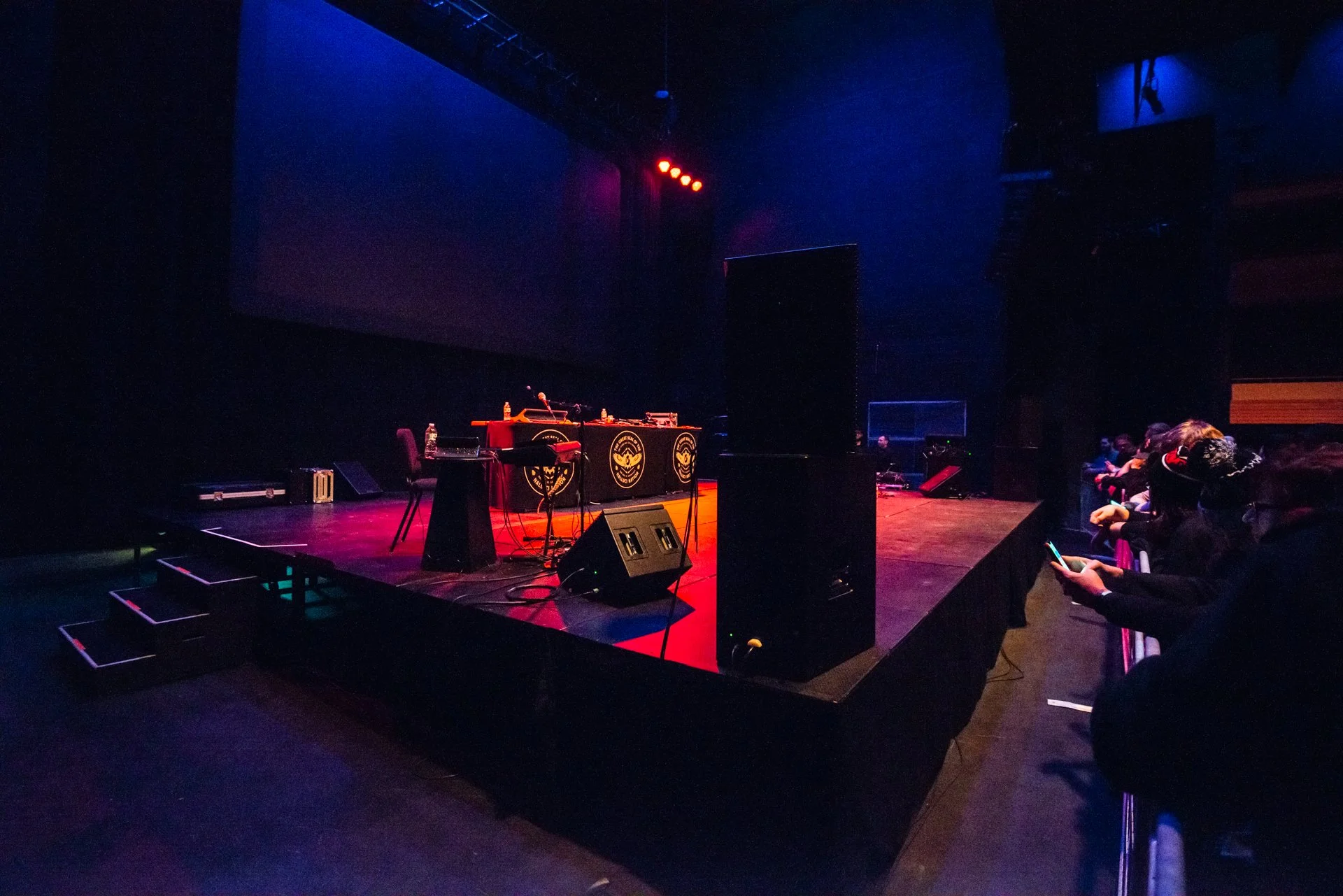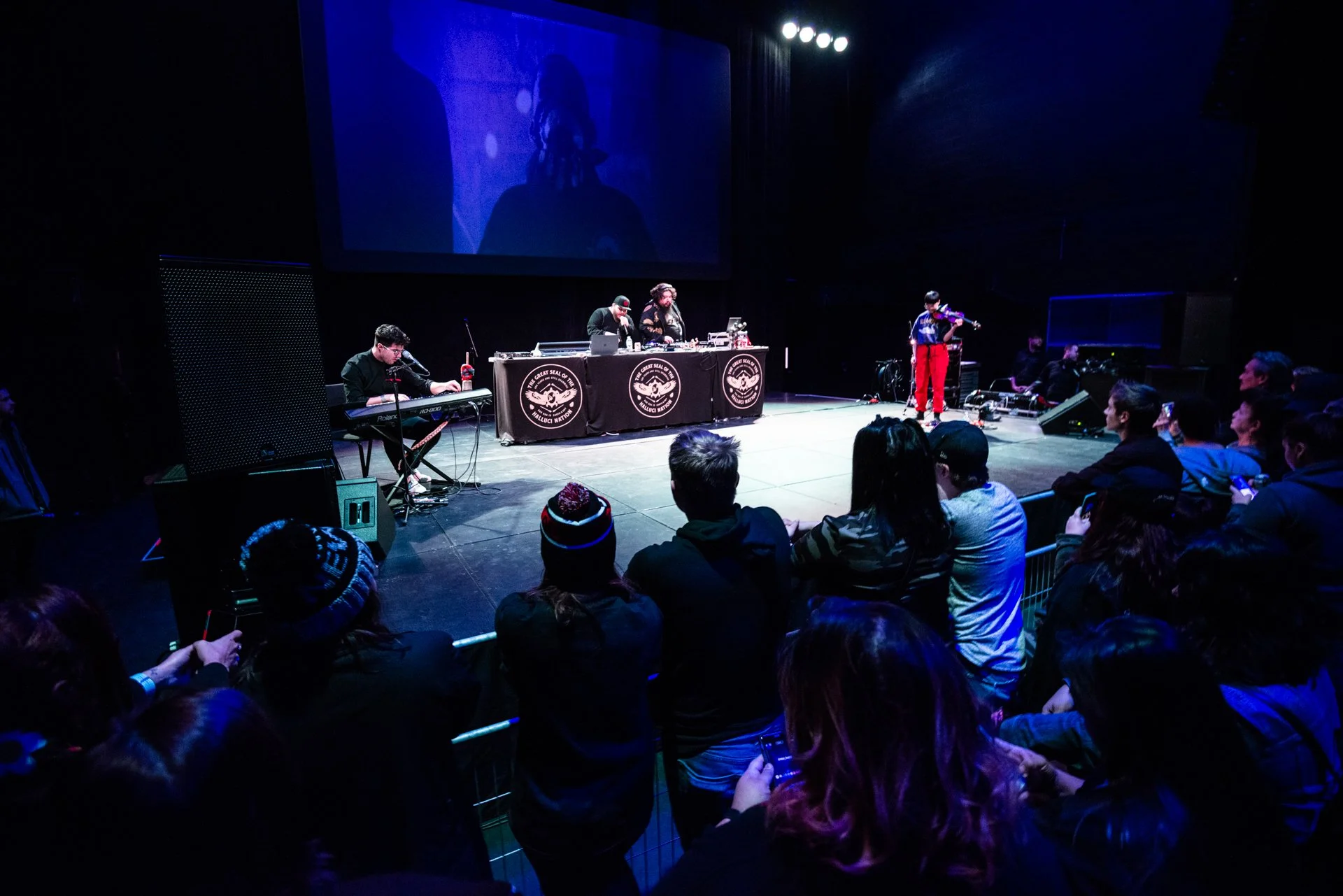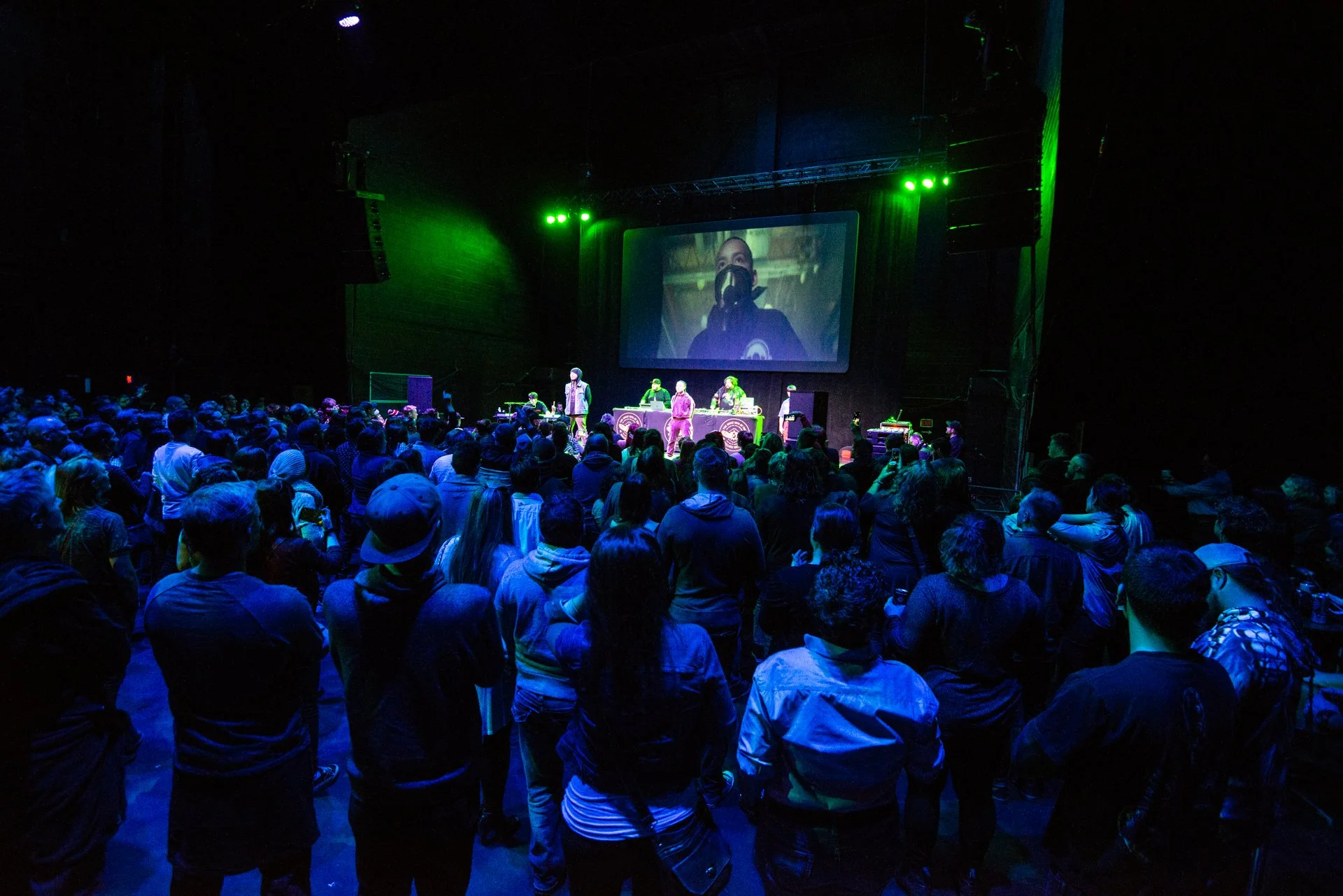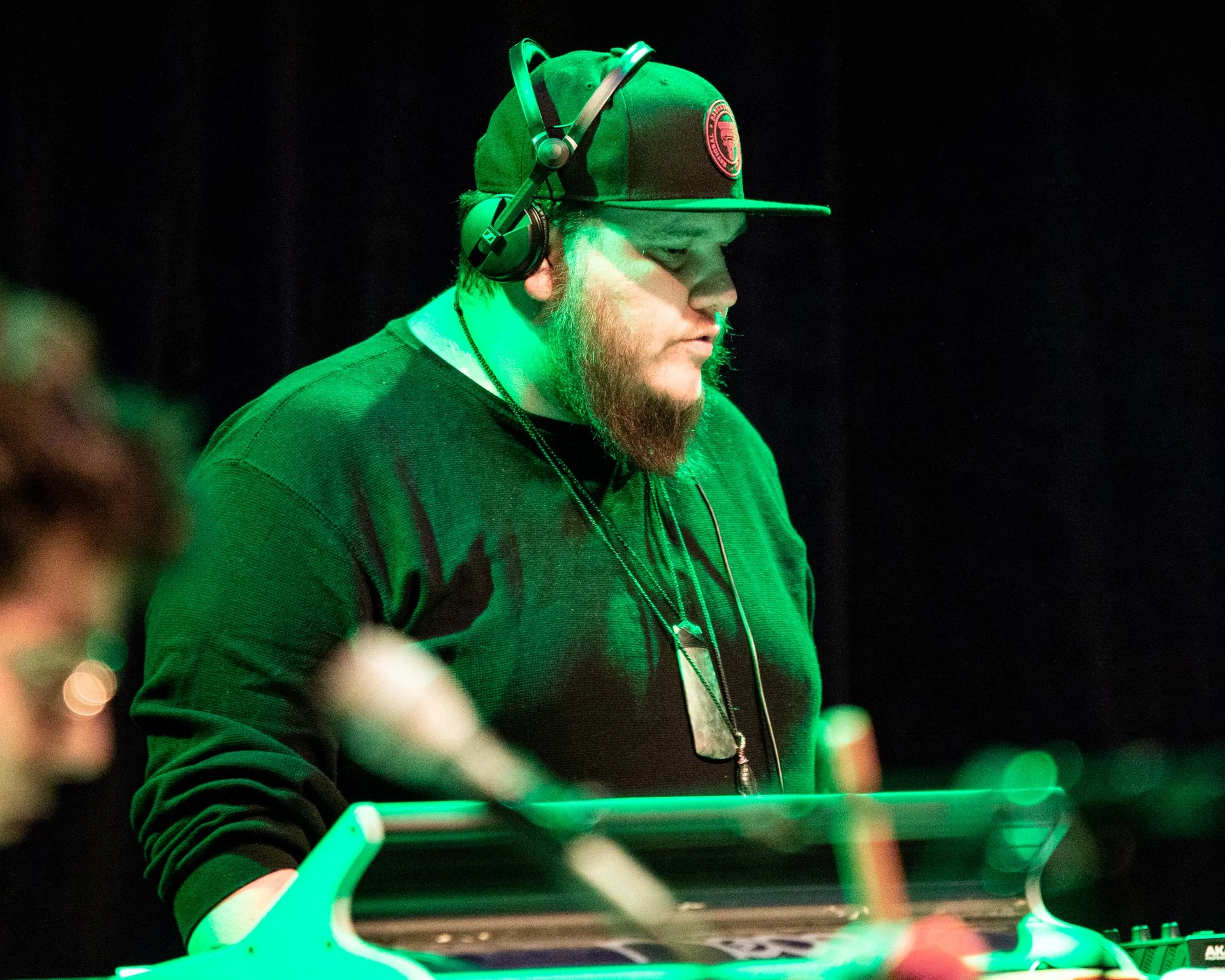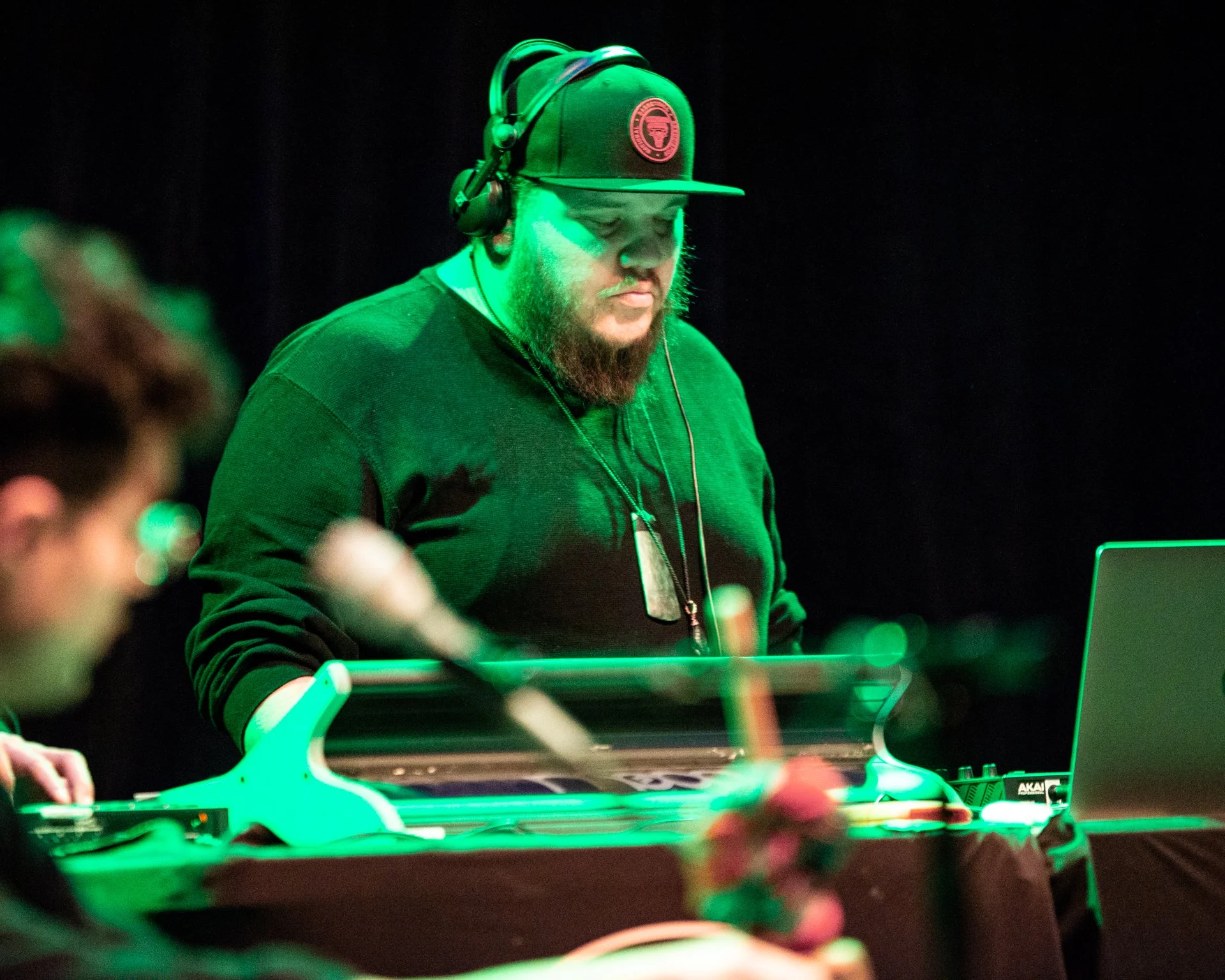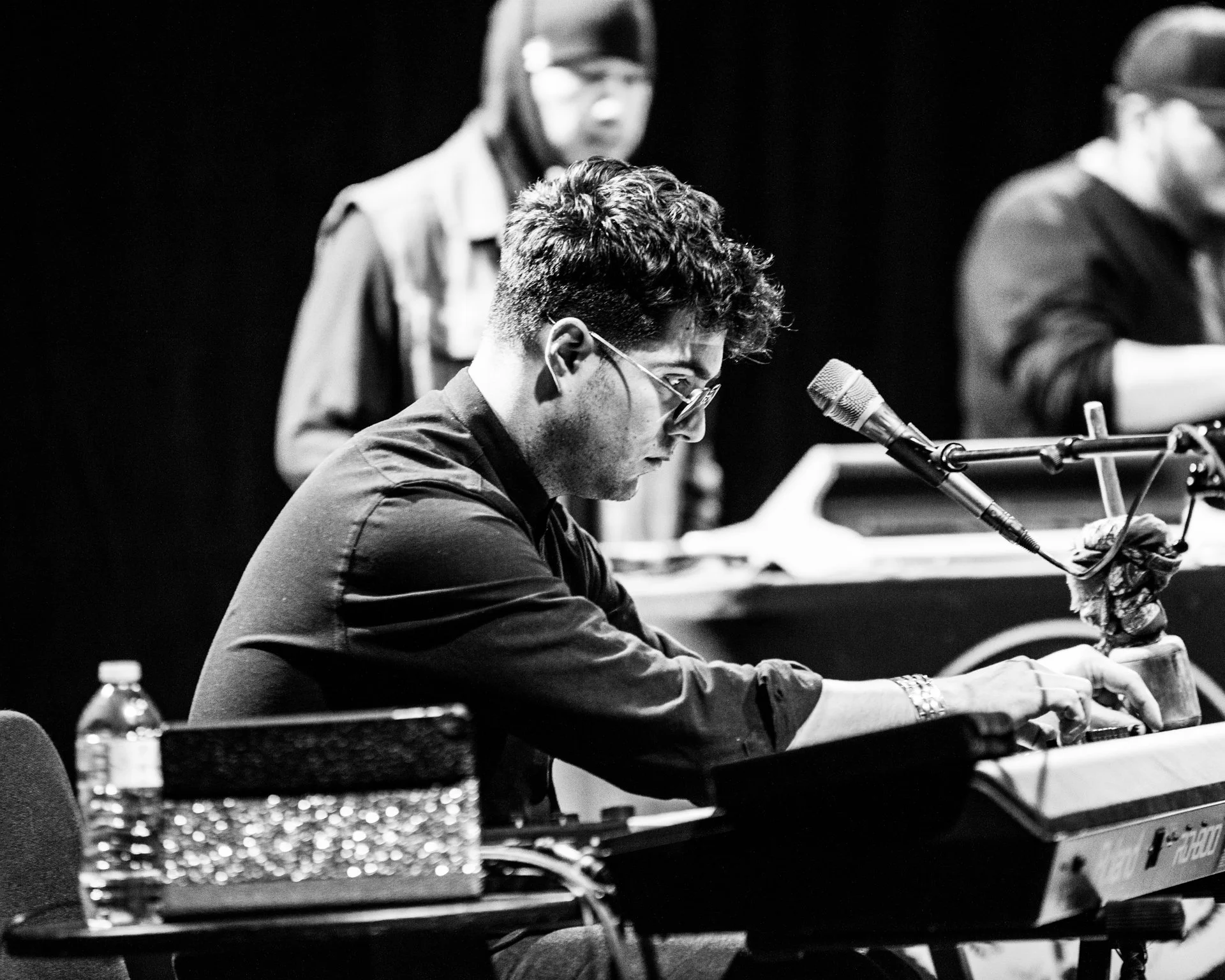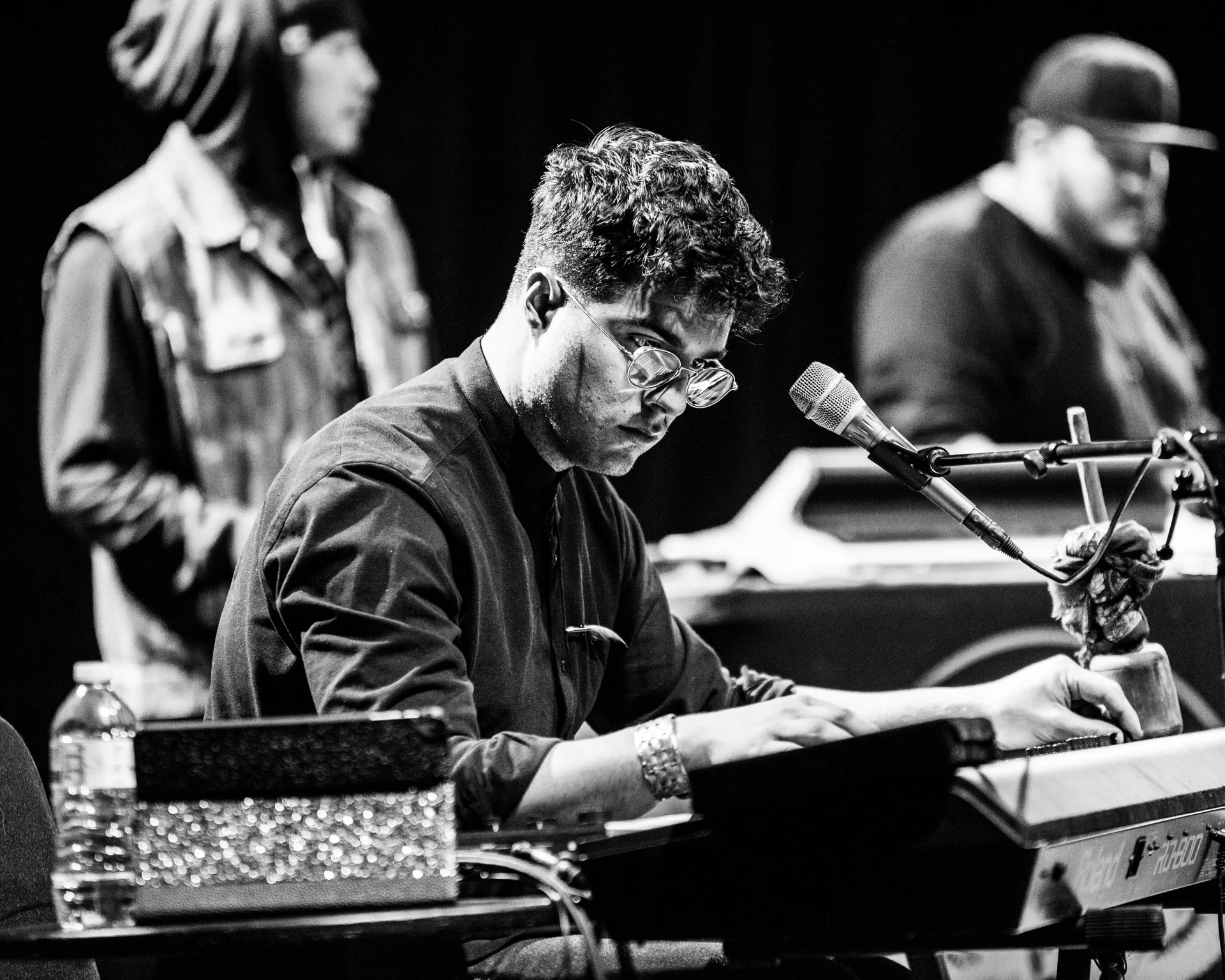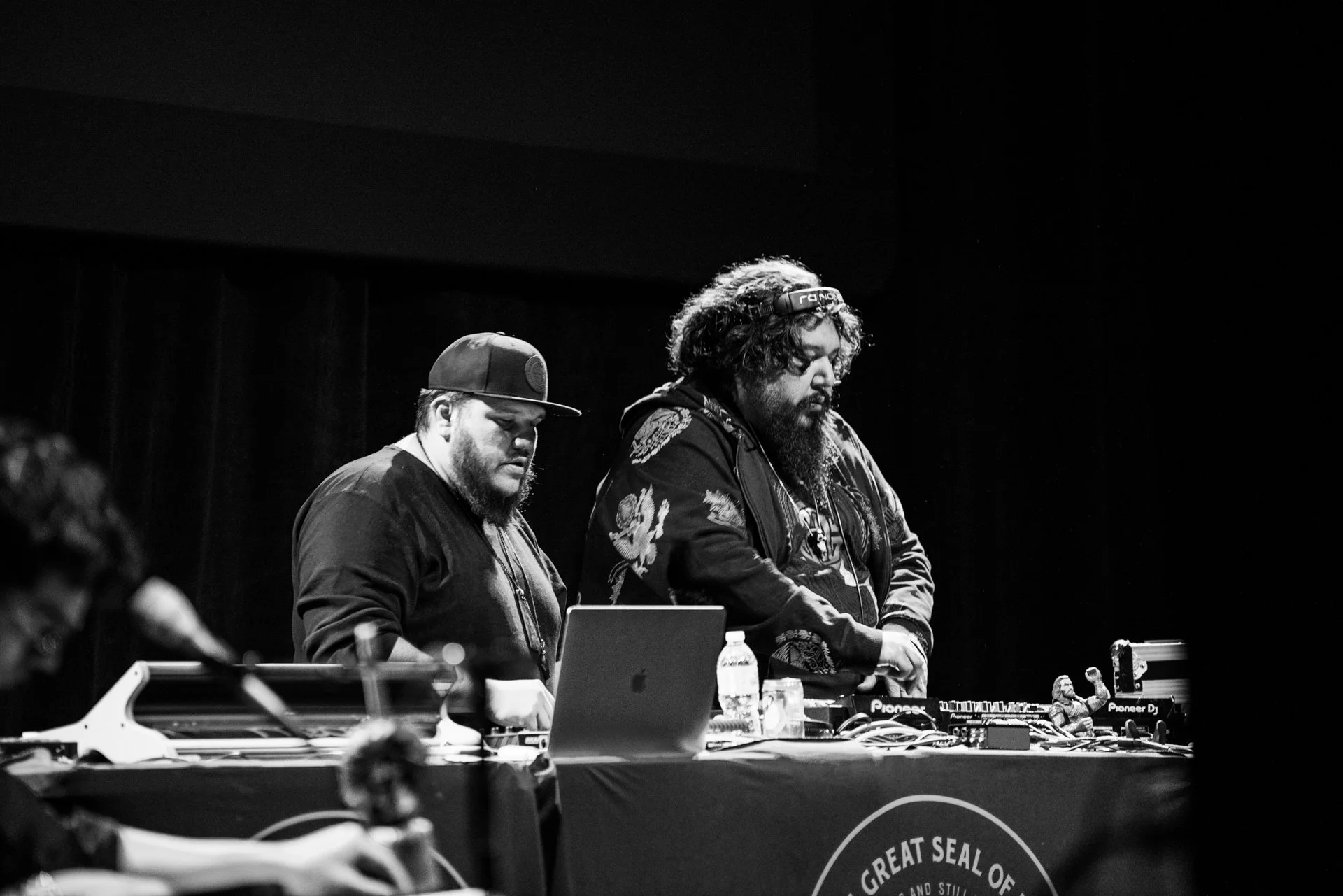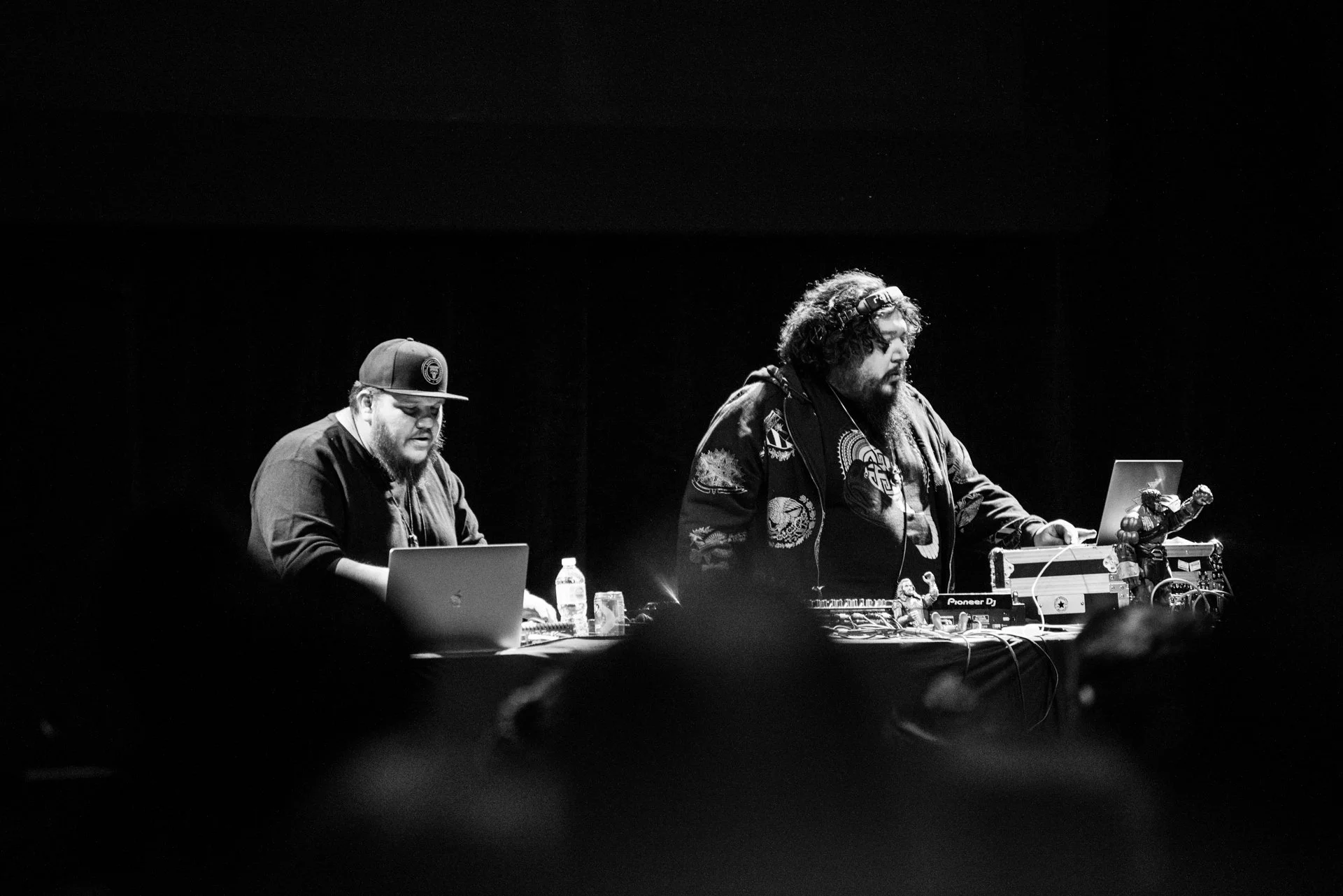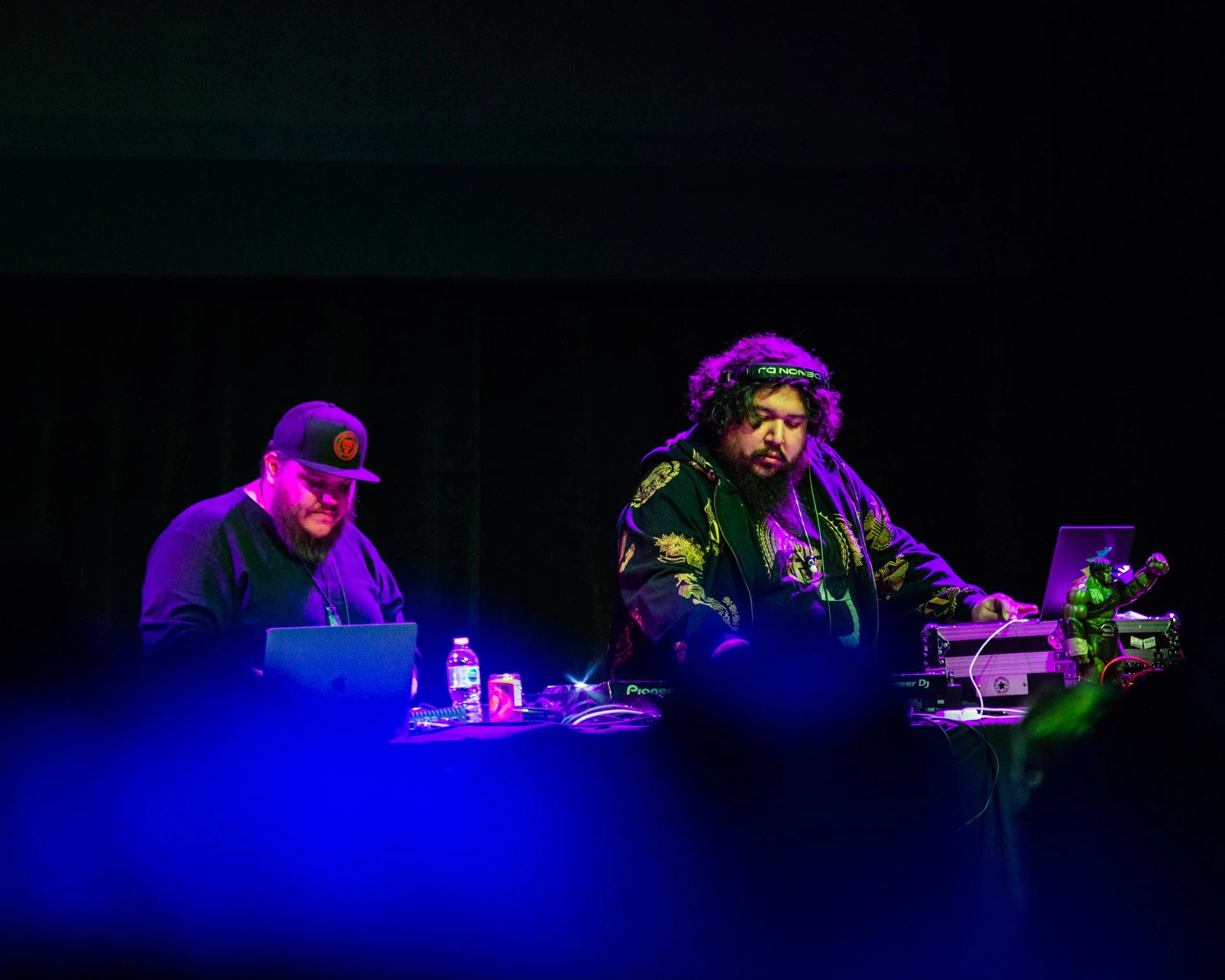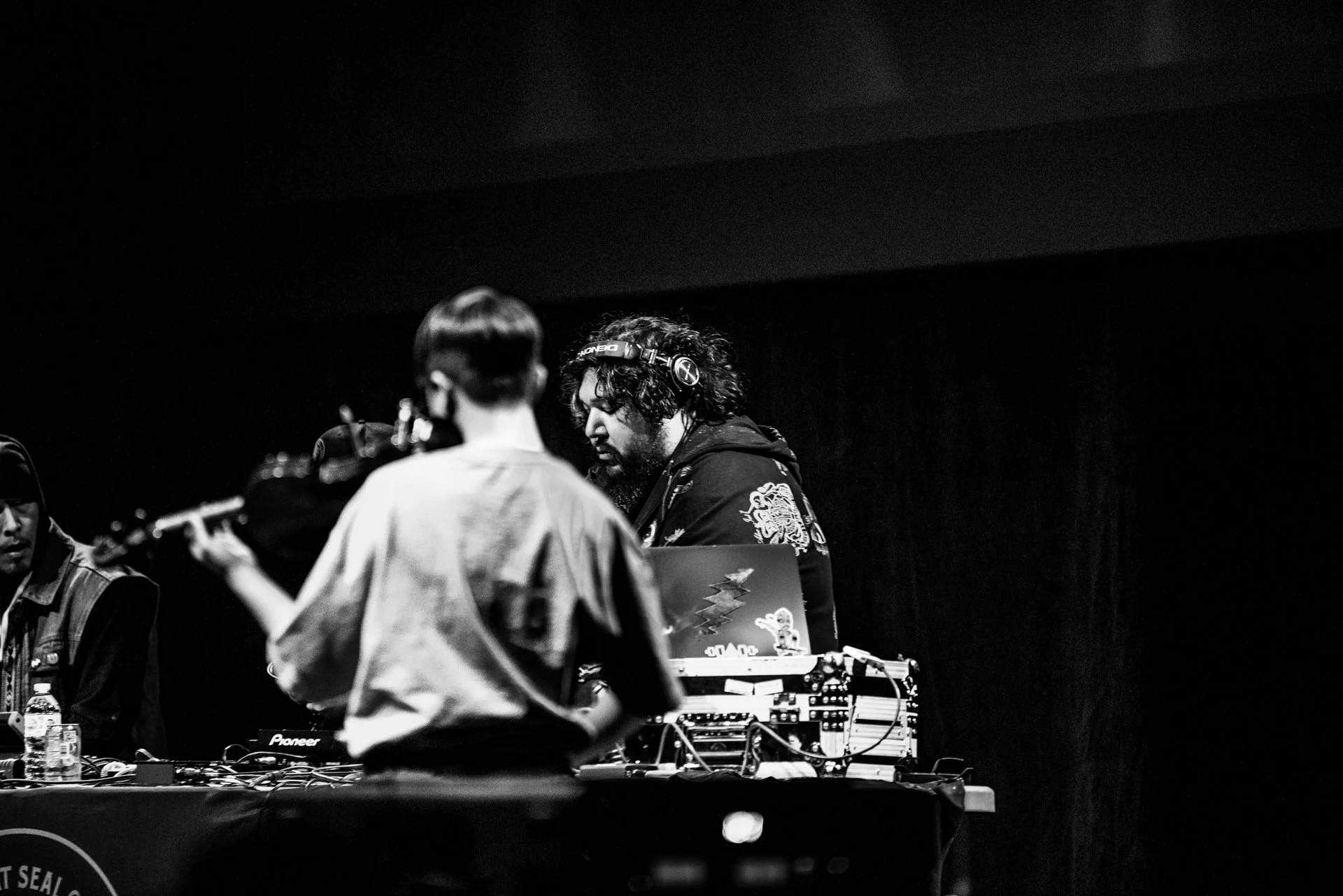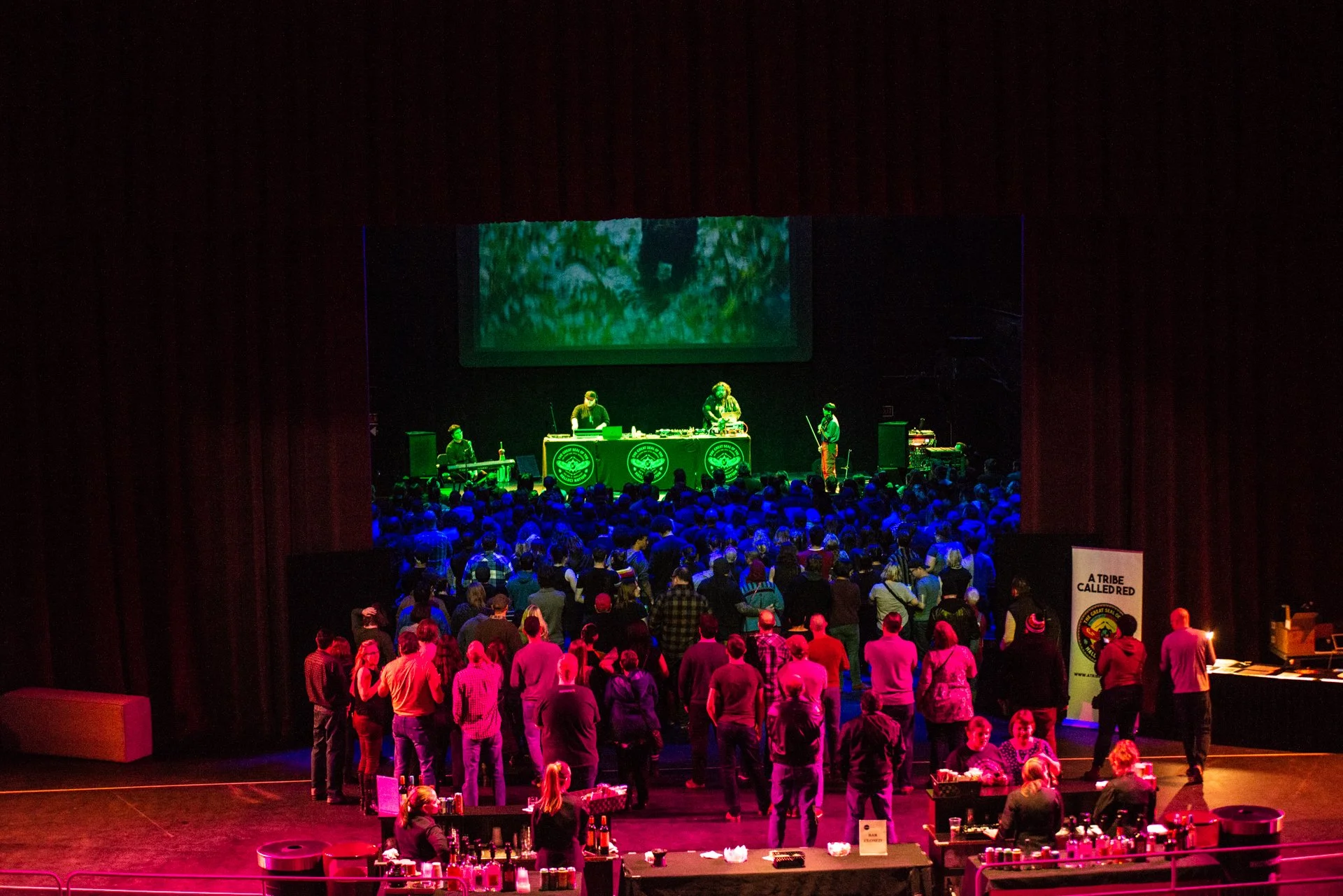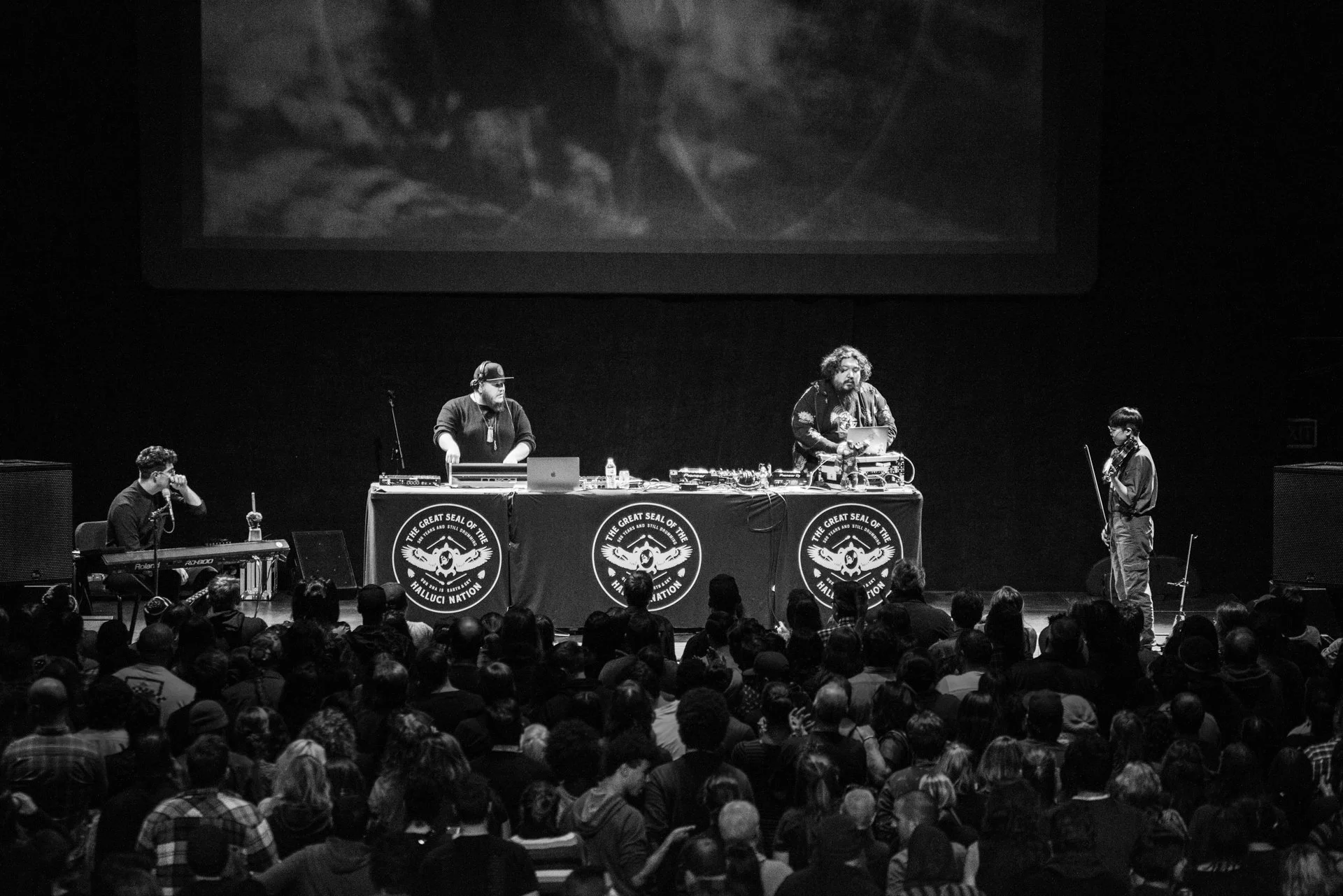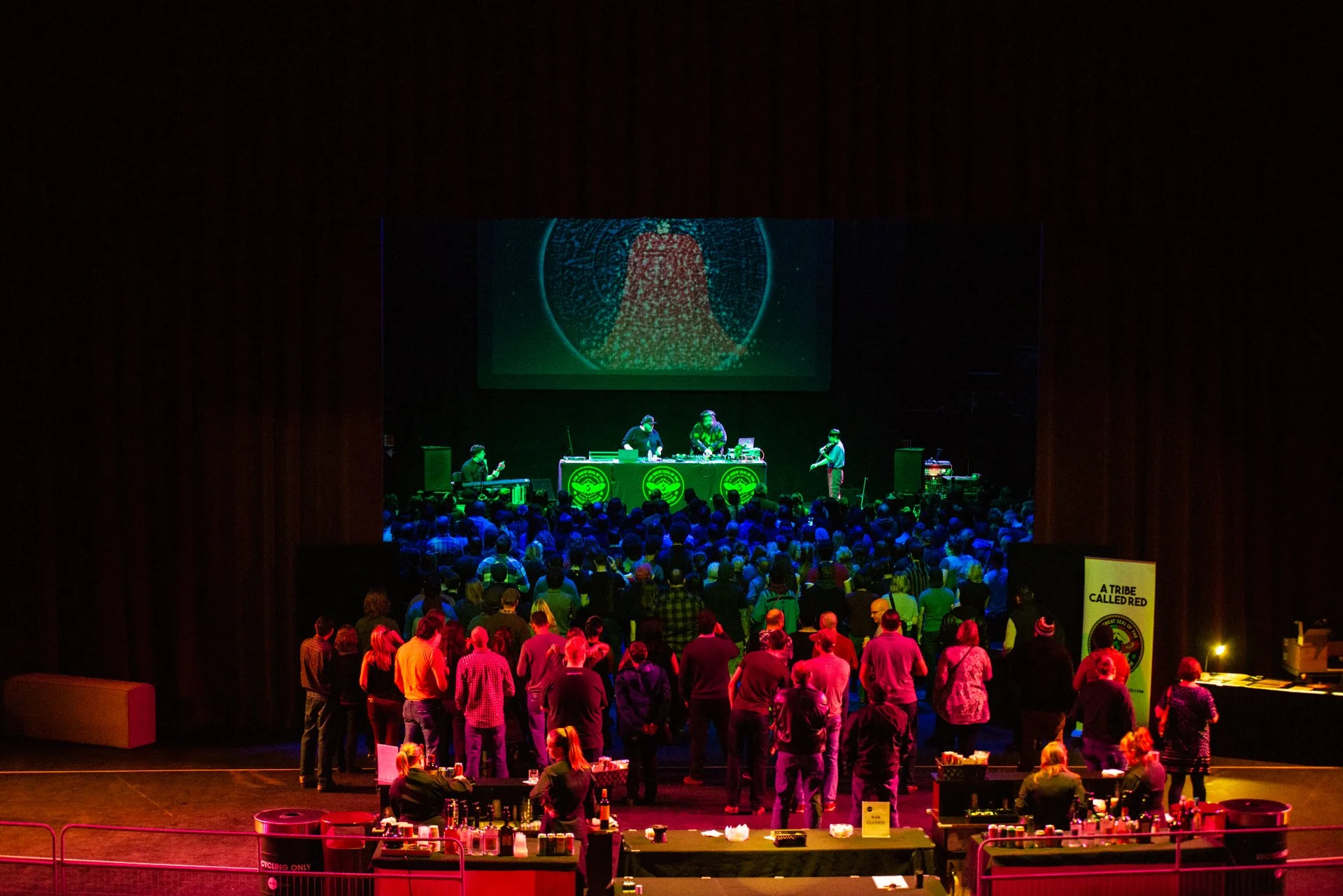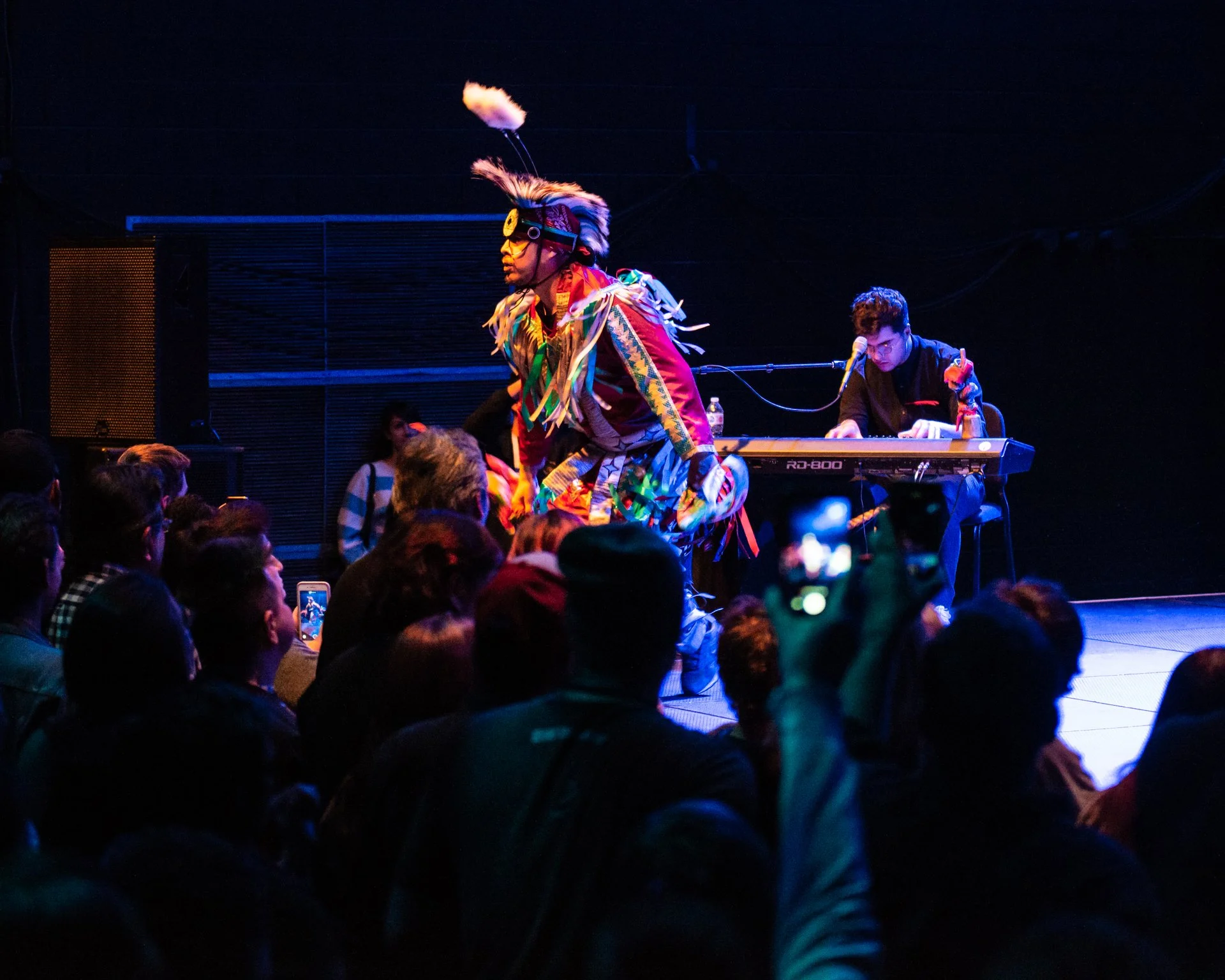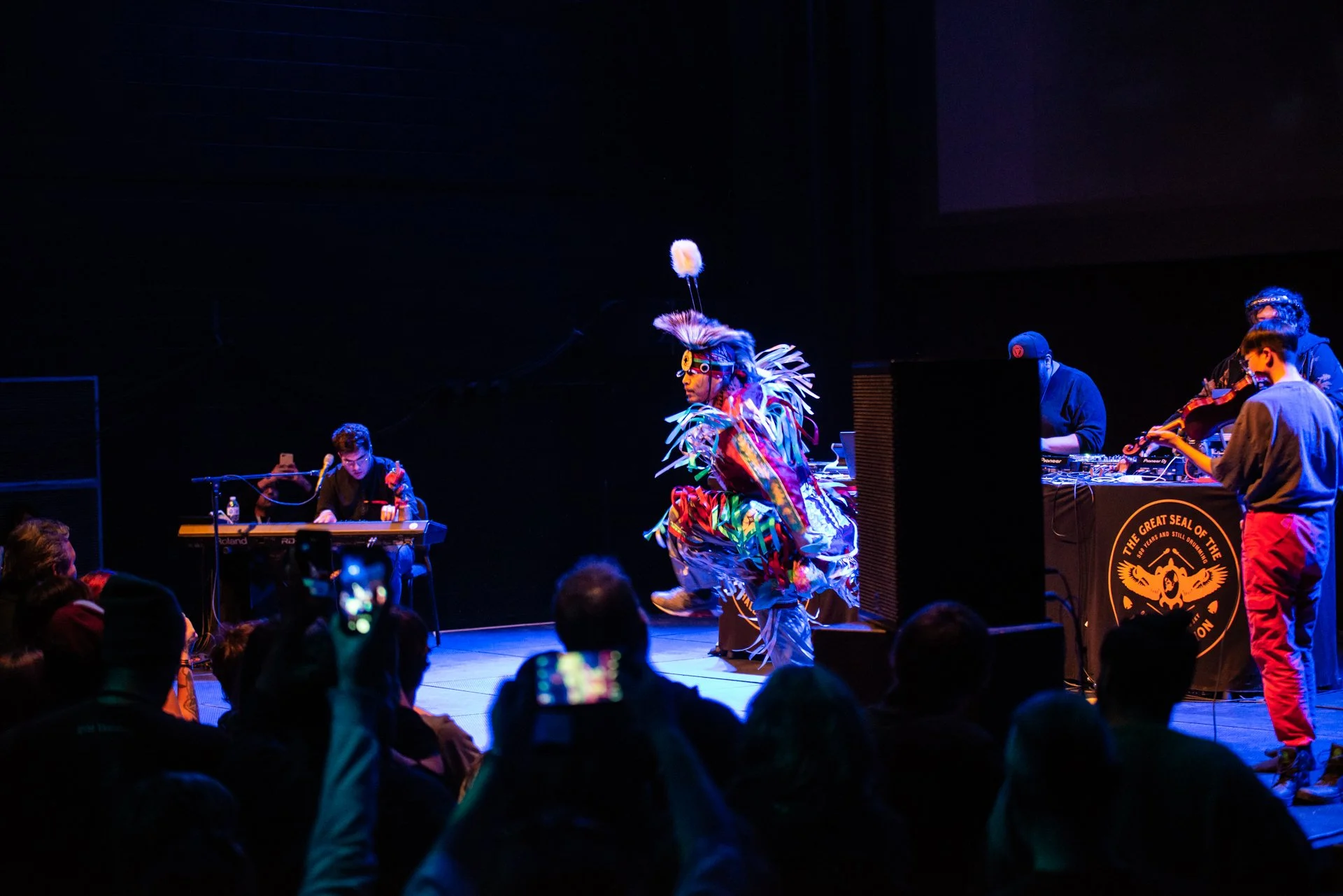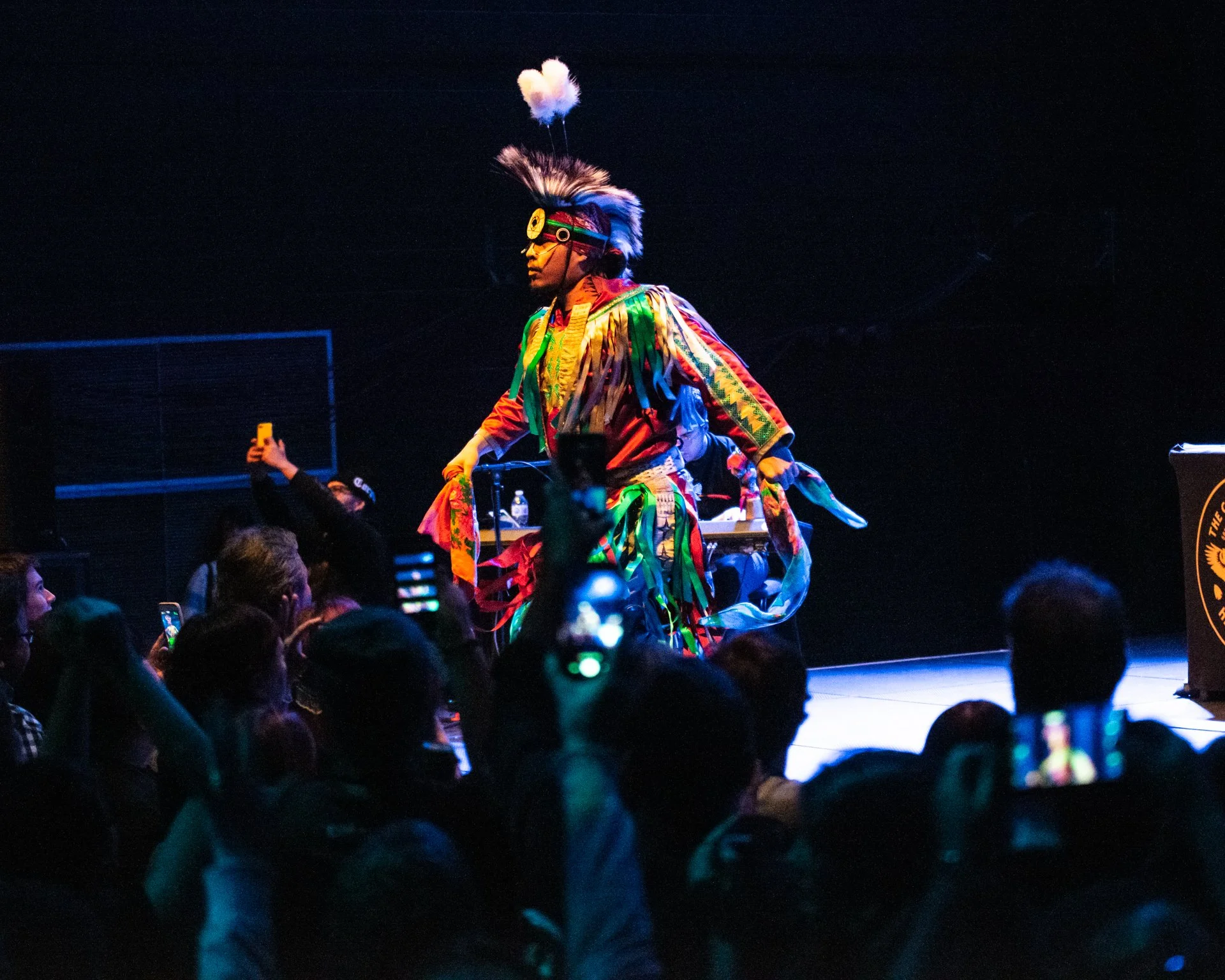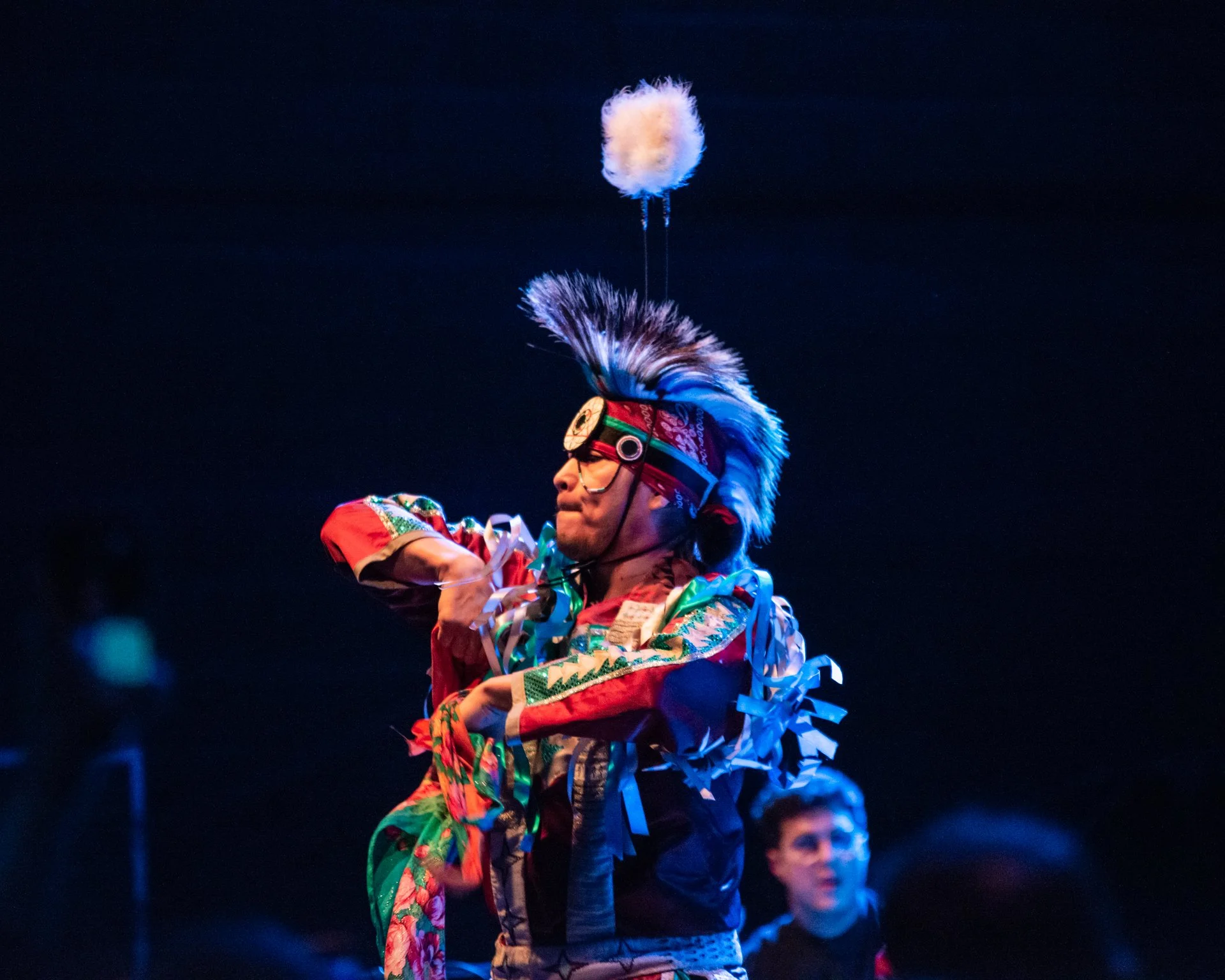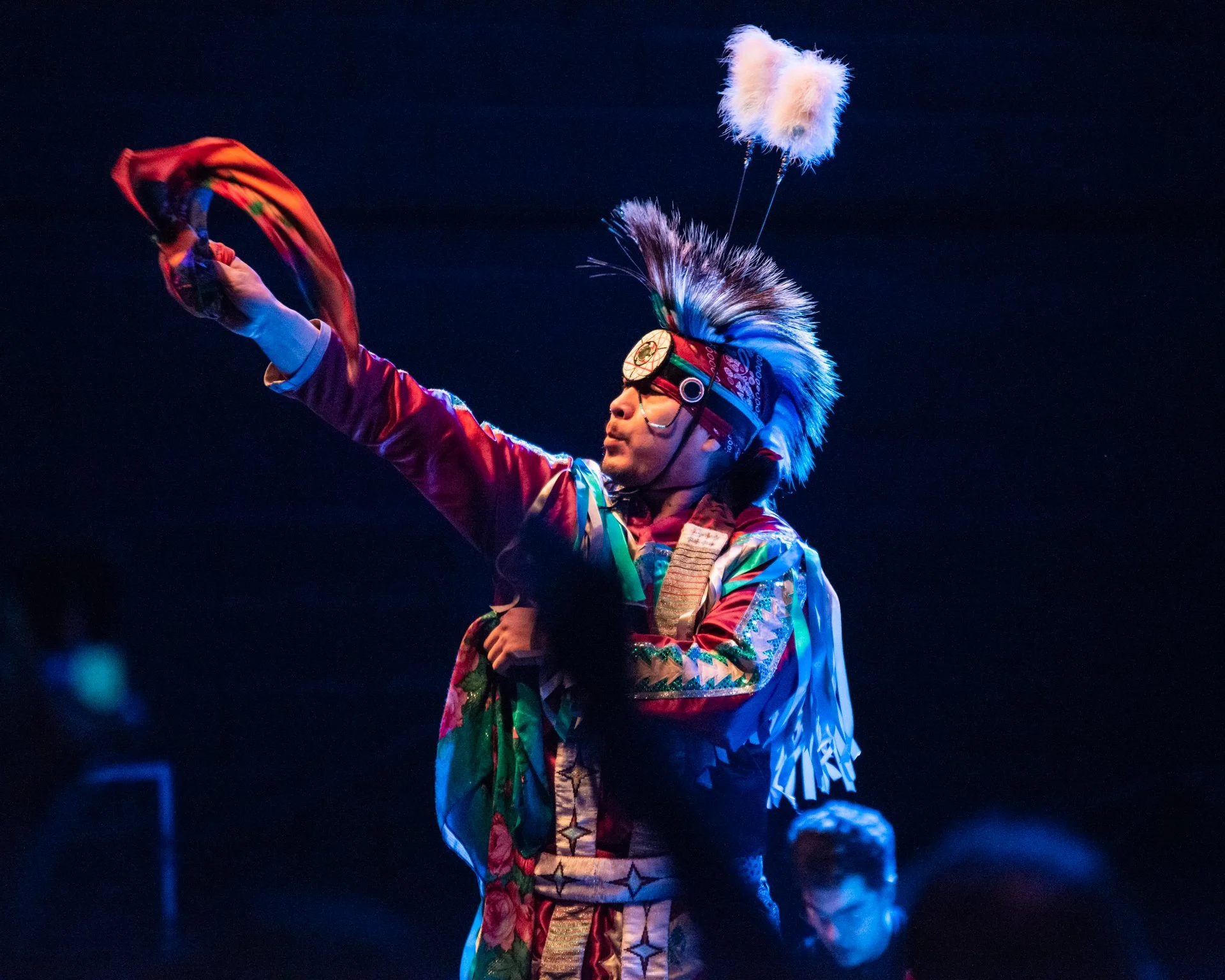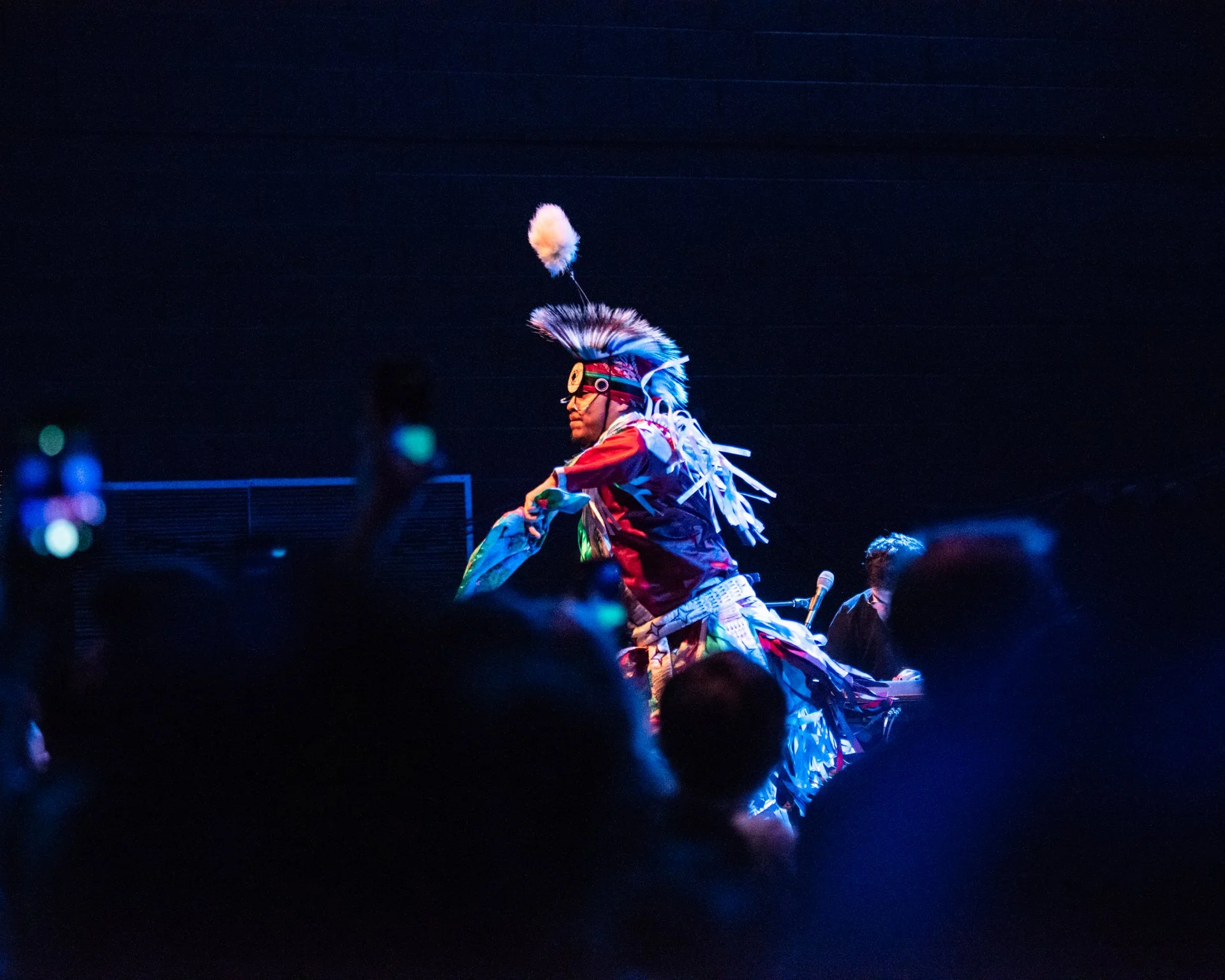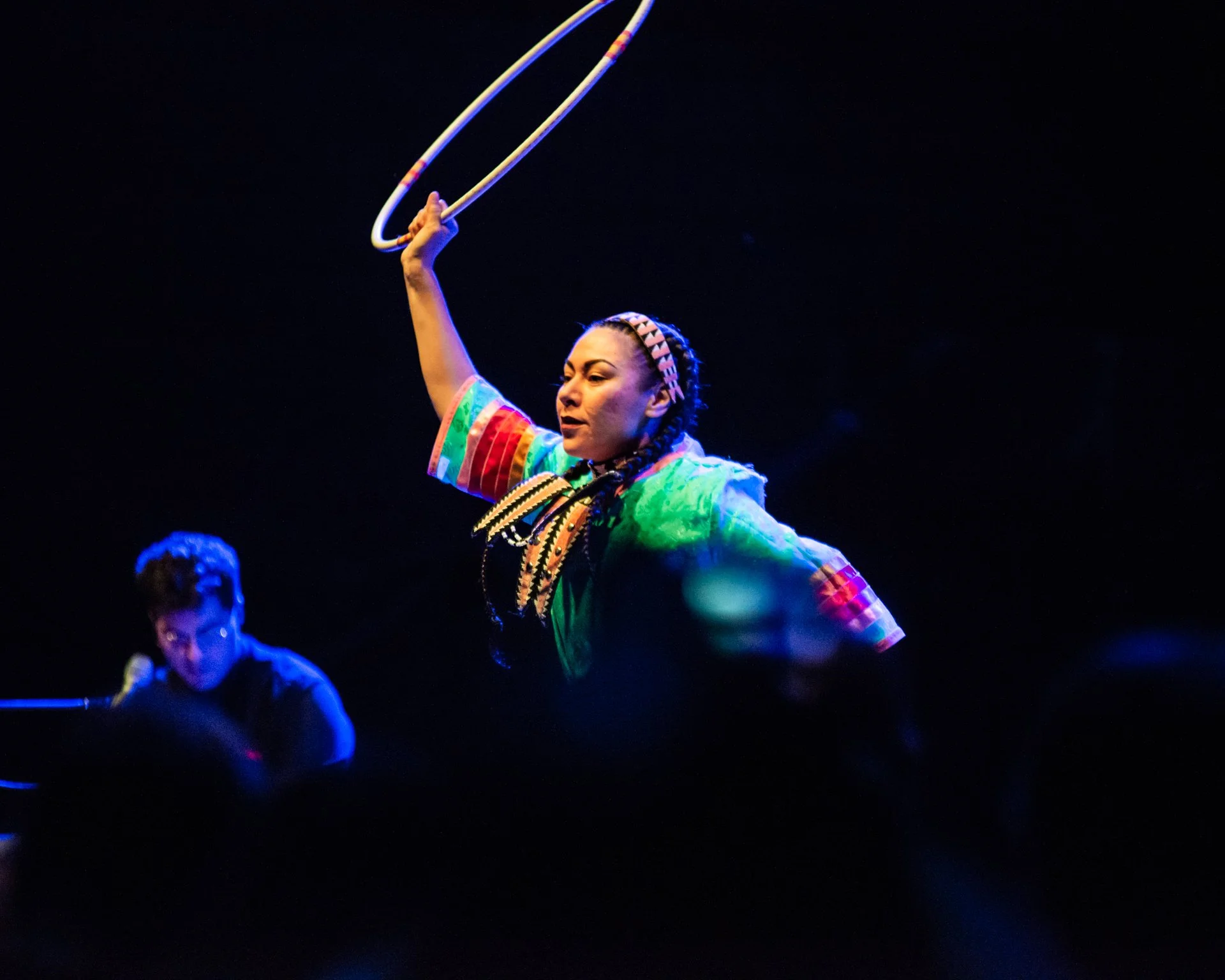A Tribe Called Red
A Tribe Called Red is an award-winning Canadian electronic music group, founded in Ottawa in 2008. Known for their unique blend of traditional Indigenous powwow music with contemporary electronic, dubstep, and hip-hop influences — a style sometimes called "powwow step" — the group has been a groundbreaking force in bringing Indigenous voices into mainstream music spaces. Core members over the years have included Bear Witness, 2oolman, and formerly DJ NDN and DJ Shub. They’ve earned multiple JUNO Awards and a Polaris Music Prize nomination for their bold work fusing activism with sound.
Jeremy Dutcher is a Wolastoqiyik (Maliseet) composer, classically trained operatic tenor, and musicologist from New Brunswick. He gained national acclaim for his 2018 album Wolastoqiyik Lintuwakonawa, which reimagines century-old wax cylinder recordings of his ancestors. Dutcher's work, which blends classical, traditional, and pop influences, earned him the Polaris Music Prize and a JUNO Award. His music is deeply political, aiming to preserve and revitalize Indigenous languages and traditions.
In 2018, both A Tribe Called Red and Jeremy Dutcher were key figures in Canada’s Indigenous music renaissance. They shared stages at several major events, including cross-country performances connected to Indigenous-focused festivals and reconciliation events.
They performed together at high-profile cultural gatherings like Ottawa’s 2018 Indigenous Music Awards Week celebrations and special National Indigenous Peoples Day events, though they were usually billed separately with occasional shared segments.
A Tribe Called Red performed at Kitchener’s Centre In The Square in March 2017 during their We Are the Halluci Nation tour, an album heavily featuring Indigenous collaborations. Jeremy Dutcher later performed in Kitchener-Waterloo in 2019 at the Registry Theatre as part of his solo Wolastoqiyik Lintuwakonawa tour. While they didn't perform a full joint tour through Kitchener-Waterloo together, they shared festival lineups and stages during this period elsewhere in Canada, with occasional collaborative performances highlighting Indigenous solidarity.

